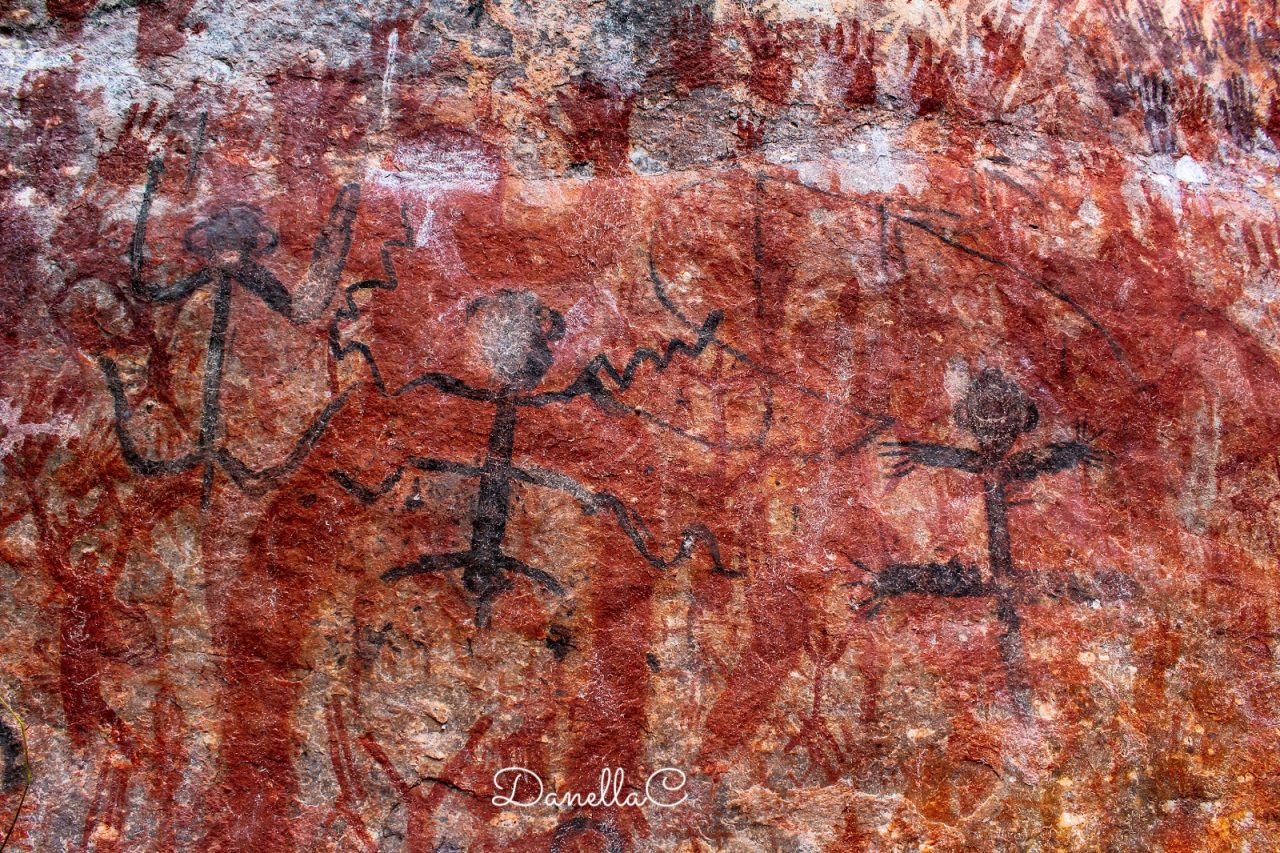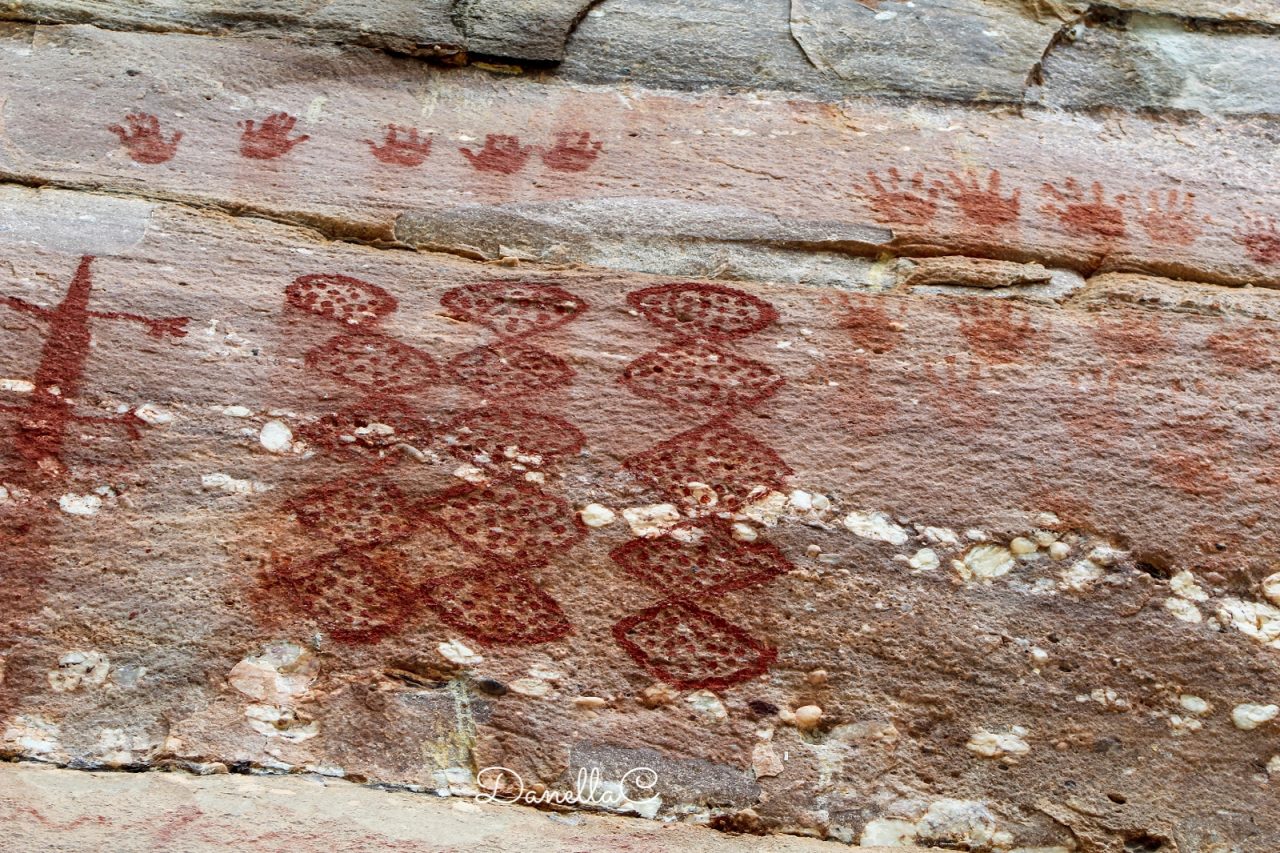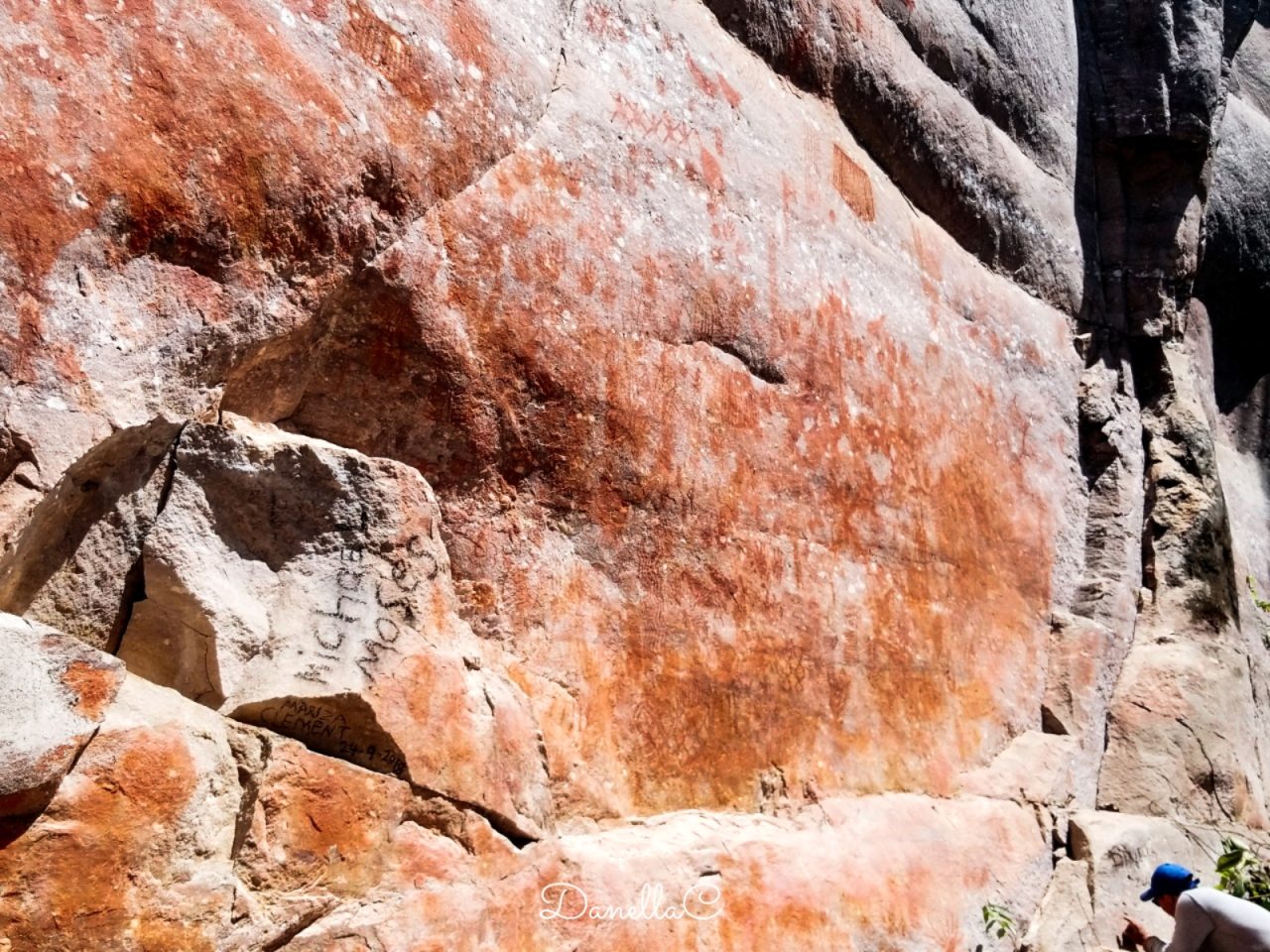By Danella Clement
Location: Karowrieng Rock Painting, Chi-chi Gorge, Upper Mazaruni District, Region Seven, Guyana, South America
Original Name: Calawillig
Name of Rock Painting Mountain: Teramen
Discoverer of Rock Painting: Peter John aka Amadar (Piai Man)
Magonaima/Makonaima – our great ancestor who resided with his family around the area of Karowrieng and/or Teramen
The mysterious rock paintings in the Upper Mazaruni were found by our Akawaio ancestor Peter John, a Kapong Piai man (Shaman), who, during his ritual, would usually smoke tobacco to put himself in a trance. It was during one of these sessions he found himself wandering along the Karowrieng area. He came upon a huge mountain which had a huge rock face with lots of rock paintings. The rock face was painted with various animals, symbols, and signs describing how our ancestors lived.
While in the trance, he met the Magonaima (Makonaima) and his family who resided in the Calawillig area and made the paintings on the wall of the mountain. He met Magonaima riding a horse along the savannah, who informed him that the water was rising and that he should join them. Magonaima advised Peter John to ride on his horse with him, because bad things usually would happen when the river is rising. They rode to where the rock paintings were.
While travelling on the path to the paintings, Magonaima enlightened Peter John about the area where they lived. He said there was a rock which was said to have special powers: if anyone saw it moving, then someone in the group would die along the journey.
On September 24, 2018, the Vice Toshao of Jawalla Village, Upper Mazaruni, Azoney Clement took approximately 30 persons, including children, to visit the ancient rock painting to become aware and knowledgeable of our history. The aim was to bring awareness to some significant features of our history that are not often highlighted throughout the country.
According to the Vice Toshao, “I am a person who likes to think out of the box. I’m not usually a person who wants to benefit alone. So, I have never been to rock painting before and I know there were not many people my age and some older that have never visited rock painting as well. For the first Heritage, I had to plan, it was an opportunity to seize at the moment, as I was planning heritage activities for the month and decided to have a trip to rock painting as an educational field trip and to my surprise, we had a lot of turnout where most of the people are first-timers, they never visited the site.
“Visiting the mountain was a surreal experience though it was quite exhausting to get there. However, being there in person I felt different, we all felt closer and yet amazed that our ancestors were once here. Looking at the paintings, I got an idea how they think, their lifestyle and how they tried to be creative with their signs and symbols. I wanted to know more, but the paintings only shared little information on what used to be their life. My aim was to inform and let more persons get the experience that the paintings existed, to connect with our ancestors or the history and how it used to be with their culture. Yes, my wish is for it to be preserved, but because of climate change, some of the paintings are faded and also when others visited, they would mark on the paintings covering the beauty of it. The journey is very far and to have materials transported to preserve the paintings might be challenging and expensive, but it is something that should be looked into before it’s gone, because by the time I have kids, it won’t exist anymore…”
It is said that the mountain that the paintings are on has plants that were used as food. Those plants were placed there by our ancestors and to this day, the seedlings from these plants contribute to nearby farms.
As a young adventurous nature lover and curious soul, I could not have missed the opportunity to visit our ancient Amerindian rock painting as I was very determined to learn and capture as much as I can with my cameras. The journey to get to the paintings was not easy, yet, I learnt so much of the history and saw all the beautiful sites.
I got to see the creeks, rivers, a huge and beautiful waterfall and even enjoyed the lovely whistles of the birds. A few got to witness the horses’ heels also.
I wish our Guyanese people can get to experience more of the beauty our country has to offer. The experience was phenomenal. I hope to bring awareness and work towards making this a tourist site because it deserves the recognition, all with respect and significance.
I am very grateful I got the opportunity to visit and more so that children were curious enough to learn their history. I felt connected and am very thankful I got the experience. I will pass on the knowledge and when given an opportunity to highlight parts of Guyana that are not so recognised, I will.
Our country is so beautiful.











